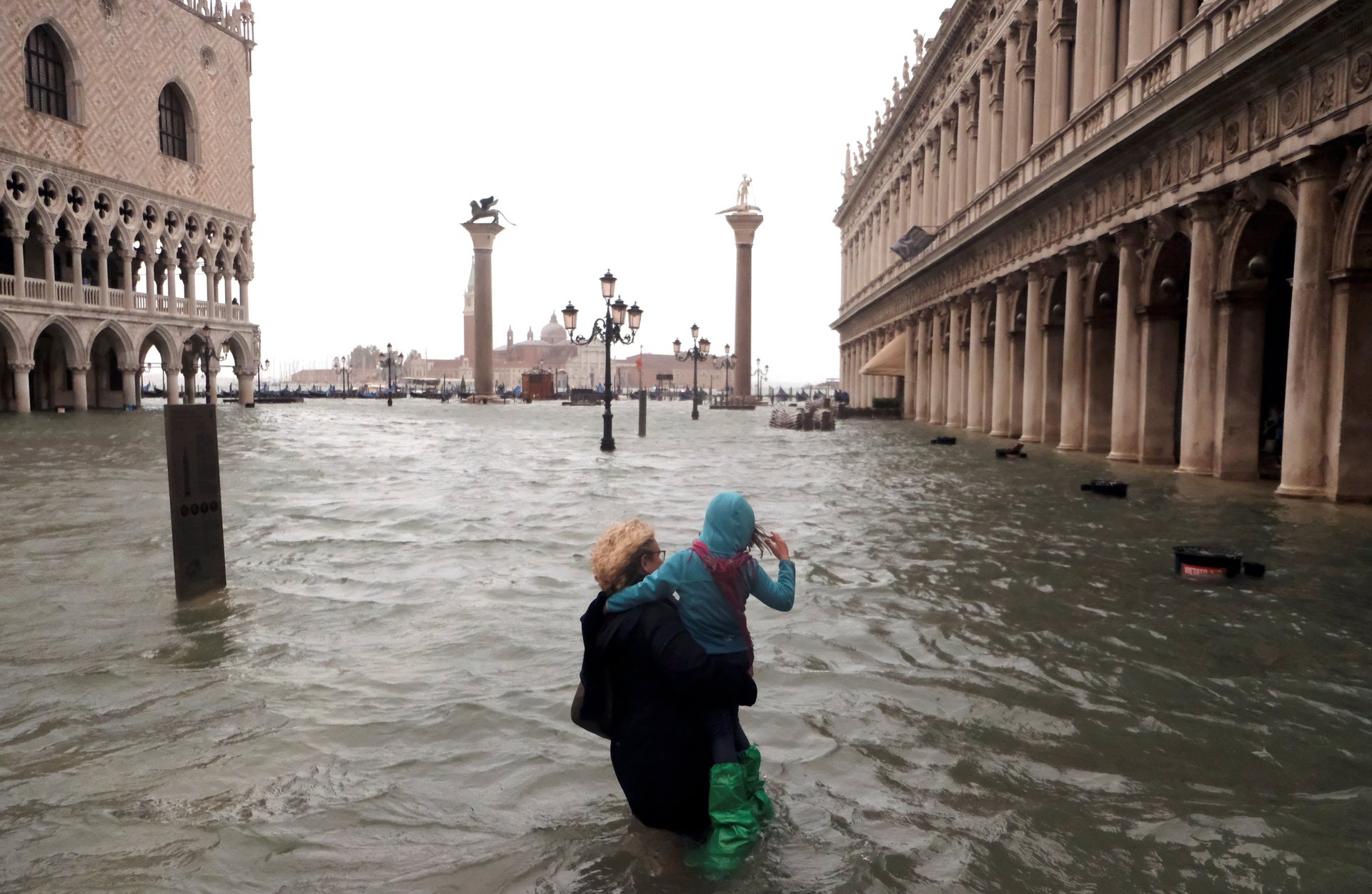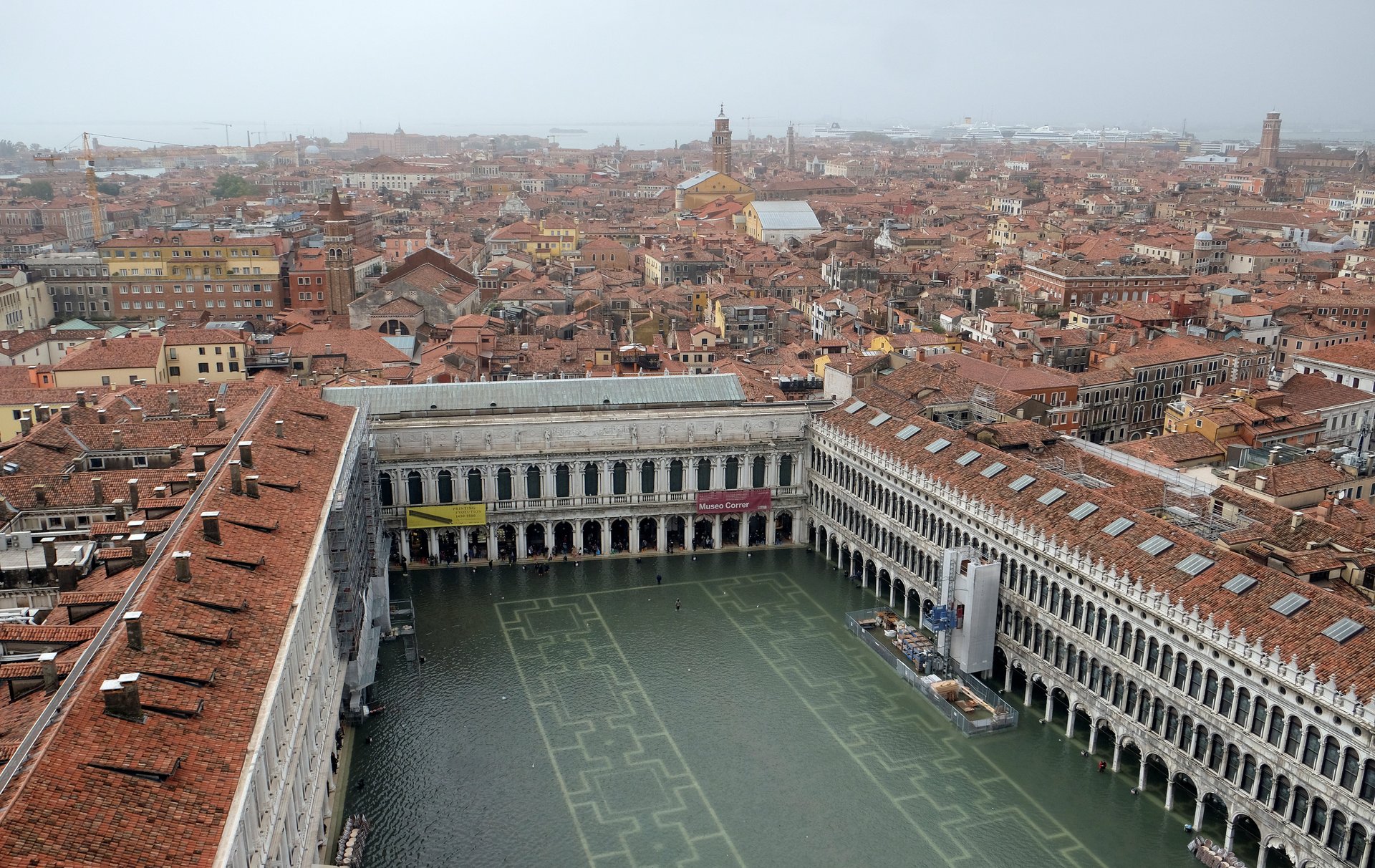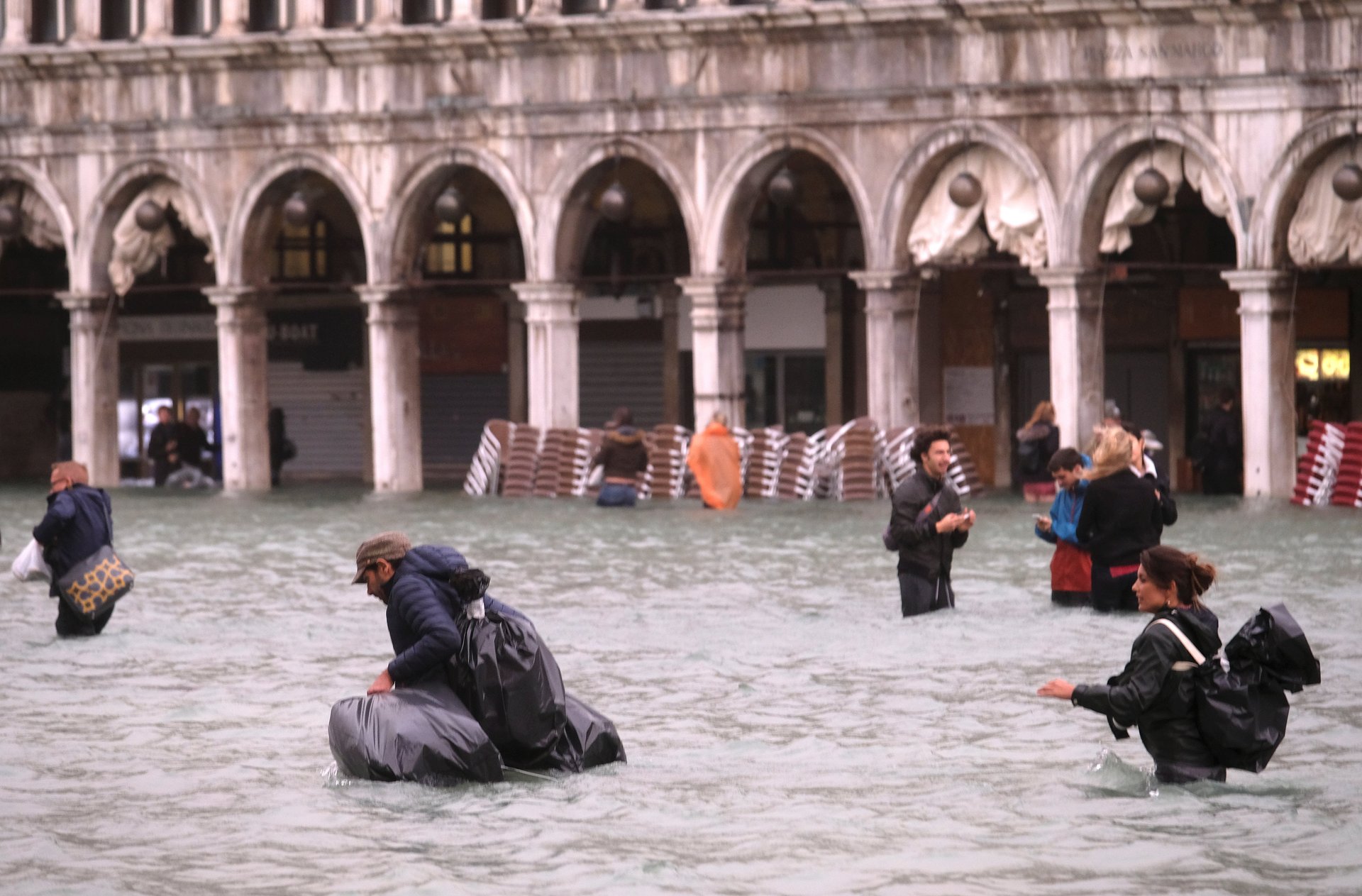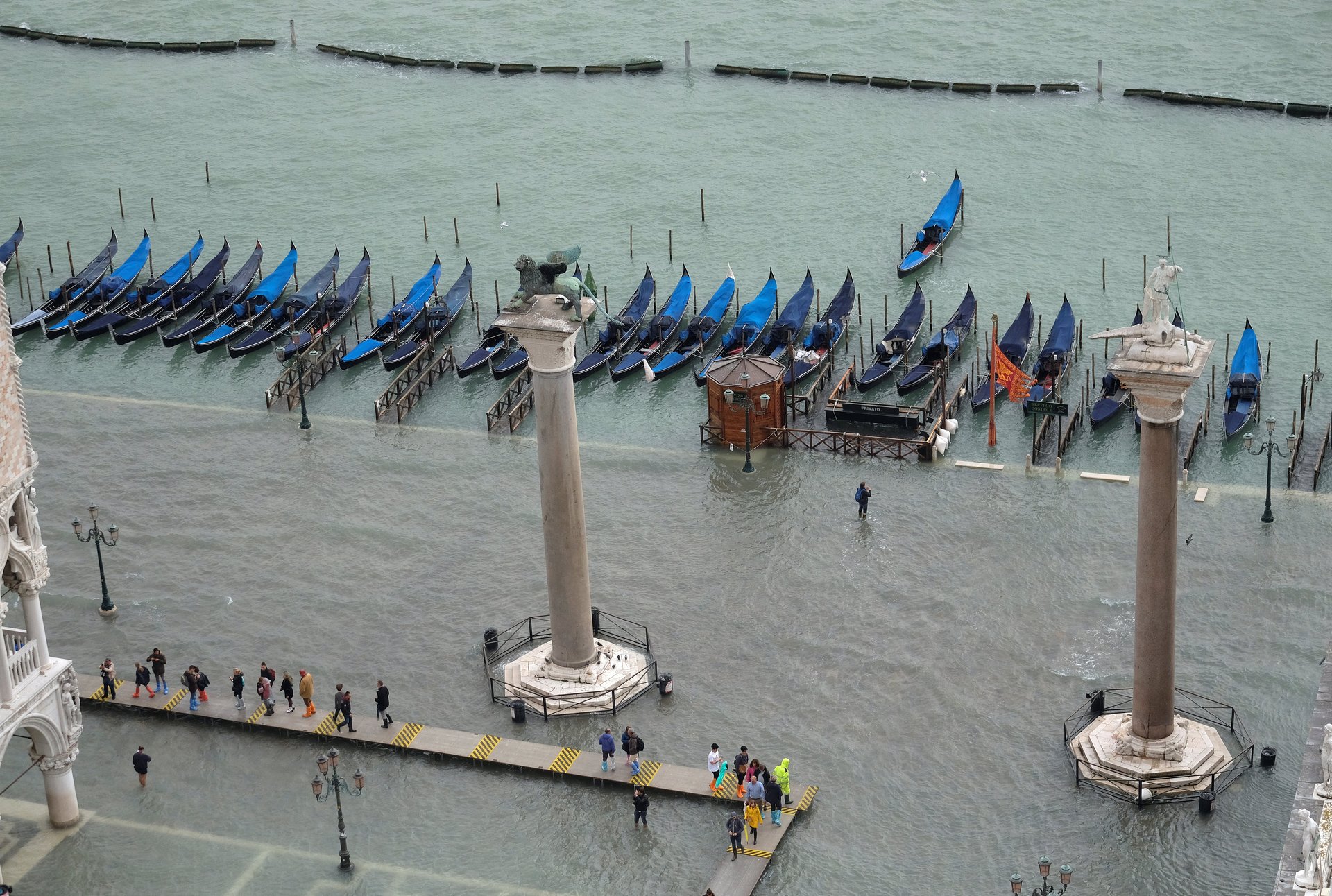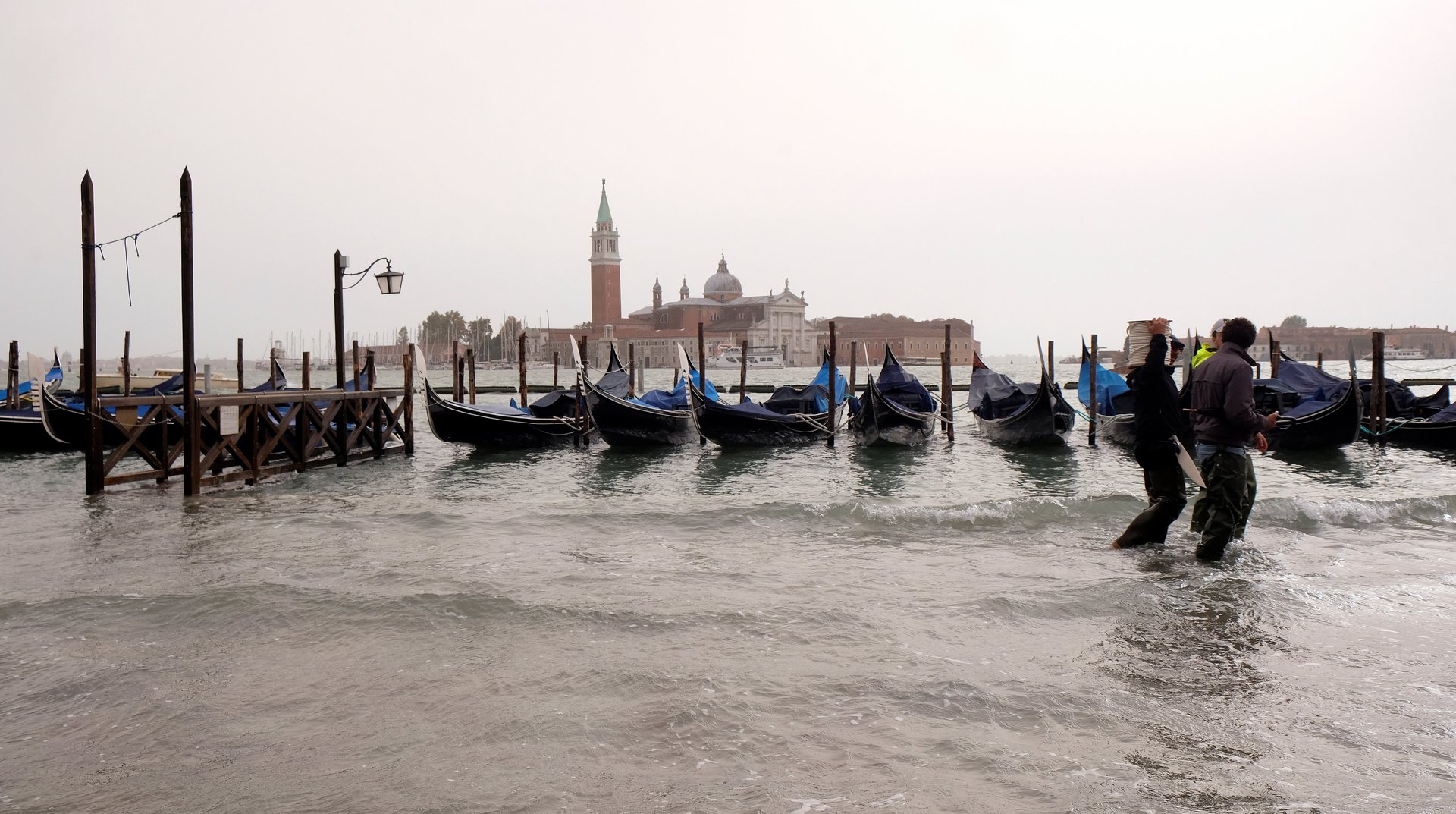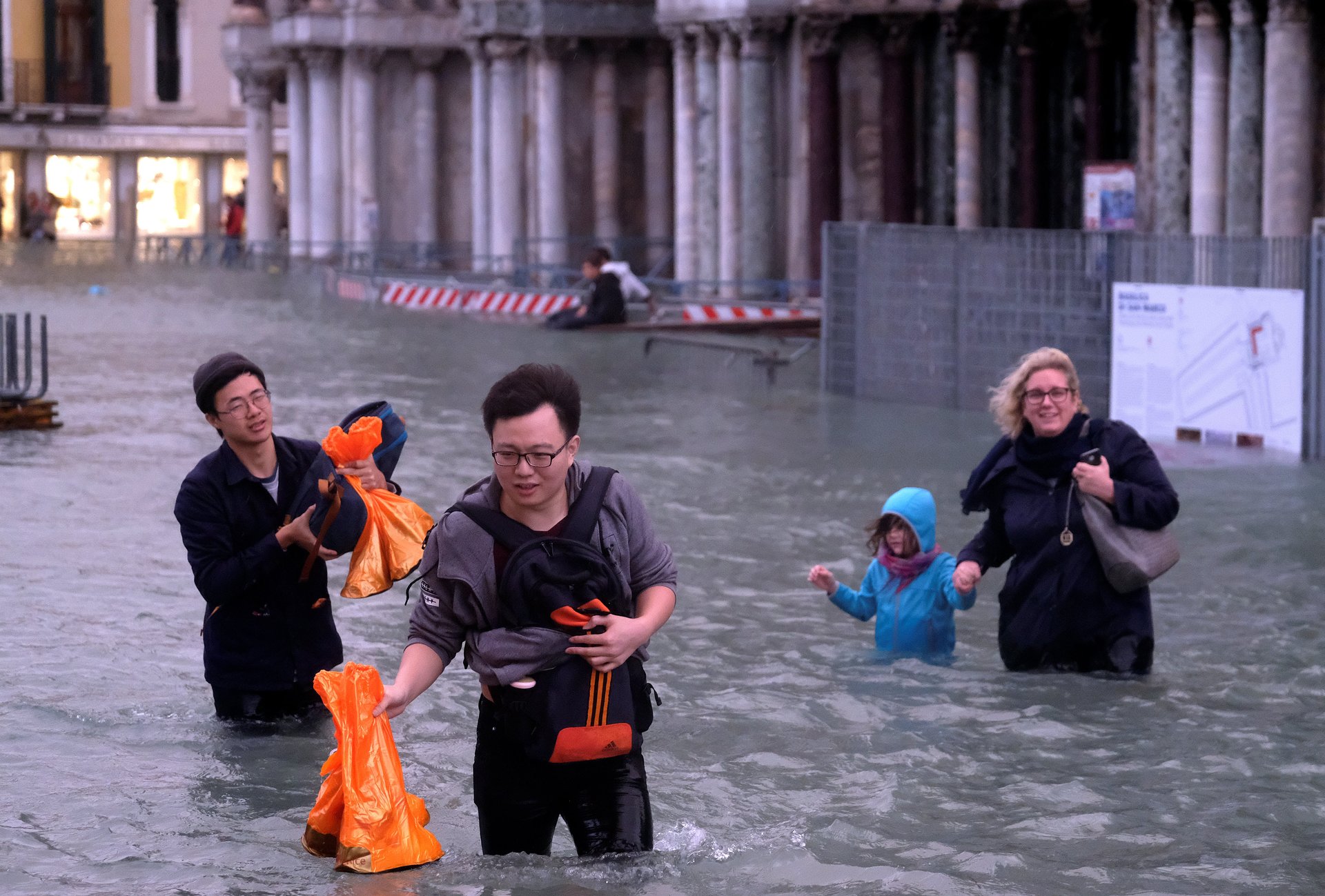Photos: As much as 75% of Venice is submerged under floodwater
Venice is ordinarily pretty watery. But the worst flooding in a decade has left the Italian city completely submerged, after ferocious storms caused small tornadoes and hurricane-force winds. At least 11 people have died, with many more injured. At its highest point, on Monday (Oct. 29), the high tide rose to more than 61 inches (156 centimeters) above average sea level. (The record high was in 1966, when sea levels rose to 76 inches above the average.)


Venice is ordinarily pretty watery. But the worst flooding in a decade has left the Italian city completely submerged, after ferocious storms caused small tornadoes and hurricane-force winds. At least 11 people have died, with many more injured. At its highest point, on Monday (Oct. 29), the high tide rose to more than 61 inches (156 centimeters) above average sea level. (The record high was in 1966, when sea levels rose to 76 inches above the average.)
All over the country, winds and storms have resulted in dozens of yachts being destroyed. Schools have been closed and roads blocked by flooding or felled trees. Residents and tourists alike were left stranded after a provincial road to the coastal town of Portofino was destroyed, while hundreds had to be evacuated from towns in the mountains northwest of Venice after rivers broke their banks. The New York Times reports that fish were swimming through the streets of one such hill town.
In Venice itself, waters rose well above knee height, relegating pedestrians to raised walkways. Shops and restaurants alike were flooded, after water broke through barriers across doorways, while the cathedral will require significant repairs after water submerged the baptistery and 90 square centimeters of its mosaic floors. For 16 hours, the basilica’s grounds were under water. “It may not be visible to the eye, but structures age because of the salt water drenching the bricks, which were not meant to remain underwater for long; that goes for bronze, too,” board member Pierpaolo Campostrini said in a statement. “The bricks are like sponges, and if the water levels don’t drop, the water rises several meters to the mosaic level. In one day, the basilica aged 20 years.”
This is the second time this century that the basilica has flooded, according to Italian media reports in the Guardian, and the fifth time in its millennium-long history that the cathedral has been exposed to such high water.
The weather is expected to improve today—but there was a bright side to the flooding for some enterprising tourists, who took to Saint Mark’s Square not to marvel at its buildings, but to go for a swim.
